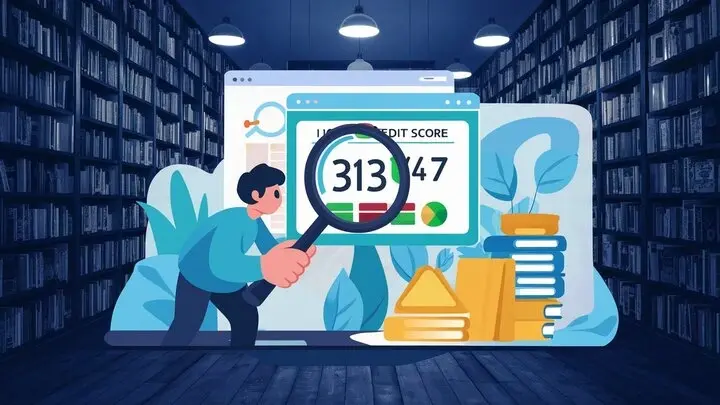-
Posted on: 28 Jun 2024

-
For instance, credit score plays a crucial role in one’s financial fitness and the opportunities that come with it. It shows the lenders how capable you are of paying back any loans or debts as a way of forecasting your behavior. Poor credit rating may also lead to rejection in credit card applications, loans, mortgages, and rent among other things, and if approved, the rates provided would be higher. This is why it is essential to keep an eye on your credit rating and constantly work on improving it. Below is some information on how one can check their credit score.
Getting Your Credit Report
The first process that should be followed to check one’s credit score is obtaining a copy of a credit report from any of the three credit reporting agencies that operate in the United States, these include Equifax, Experian, and TransUnion. According to federal law, each of these aforementioned bureaus is mandated to provide you with a free credit report every 12 months, and this can be accessed through the government-sanctioned website: AnnualCreditReport.com. Bringing your credit reports is crucial because this gives you full access to your credit history, you can challenge any error or fraudulent credit activity, and it gives you an overview of everything that affects your scores.
Credit Scores versus Credit Reports
Identify between credit report and credit score Credit report and credit score are related terms but they are not the same thing. Your report encompasses your credit activity in areas such as credit card or loan accounts, addresses, personal information, and others. This is a three-digit number that indicates your credit score based on the information provided to you on your credit report. The result is that by looking at both your reports and specific scores, you get the full picture.
Checks Your Scores: The Options
Credit reports are available free of charge; however, access to credit scores frequently requires payment of a specific amount of money. Here are some options:
1. Free credit scores
It is possible to get your FICO credit score for free once in a while from your credit card issuer like Discover or American Express if you are their card holder, they can give the FICO score on the monthly statement or online. This service is also of offered by many banks and credit unions, and their fees range from moderate to high.
2. There are Free scores on third-party sites
Some of the financial sites include Credit Karma and WalletHub which offer free VantageScore credit scores and prime credit card and loan offers. But please understand that these scores are not exactly similar to FICO scores that most lenders may employ.
3. FICO score options
For official FICO credit scores in alignment with those used by most lenders, options include:
• MyFICO.com gives all of your scores from the three reporting bureaus for about $40 and offers tools to show how proposed activities would affect your FICO.
• The other bureaus and Experian.com also offer different FICO score options on their websites for prices starting at $20.
• However, it is worth knowing that not all credit monitoring services offer FICO scores, for instance, IdentityForce does so with the monthly subscription.How Often Should I Check My Scores?
Here are some key reasons to check your credit score periodically:
• Track Your Credits – As earlier stated, credit reports help you to identify fraudulent activities that may be a result of identity theft and take the necessary action.
• Track Improvement – This is an important aspect that can help you know if your efforts to manage your finances are bearing fruit such as paying bills on time or reducing your debt.
• Get Interested – Good credit increases your chances of getting the best interest rates and repayment terms when taking up loans and credit cards resulting in great savings in the long run.
• Apply with Confidence – This means that one has to know their credit standing in advance so that one can only apply for credit cards and loans that are likely to be granted based on their scores. This means that while you may be aiming to get high scores, too many rejected applications can do just the opposite.
How Frequently Should One Monitor Their Credit Rating?
According to the opinion of most financial gurus, it is advisable to review credit reports from the bureaus at least once a year, and credit scores should be monitored twice or four times a year. Taking it much further typically is not required, although if you are going through significant changes in your life over the coming months that involve credit checks – such as obtaining a mortgage – then it is indeed possible that you will need to do more than that. In those cases, it is beneficial to look at your scores a couple of months before to have an idea of the current position.
Of course, if one is straining to reverse low grades or notices something amiss about credit cards or accounts, then it makes sense to check more often—so problems can be dealt with when they are still small.
Optimizing Future Credit Scores
Here are quick tips to maintain or improve credit scores over time:
• Ensure that all payments are made on time every month as credit history determines the score.
• Do not carry balances on credit cards – a significantly high credit card balance is not friendly to scores.
• It should also be noted, however, that frequent hard credit checks should be avoided, as they may negatively affect credit scores.
• One must pay attention to mistakes in credit reports and rectify them immediately – they affect the scores.
• If needed, enroll in credit management – this tracks any changes made to your credit report.
Monitoring and maintaining credit reports and scores and ensuring appropriate enhancement enables consumers to have a sound sleep at night and also get better credit rates for the rest of their financial lives. Take a look at some of how one can keep track of credit scores and reports to see how healthy your credit is and be financially aware!
Need better credit? Call (888) 803-7889 and let the experts help you!









